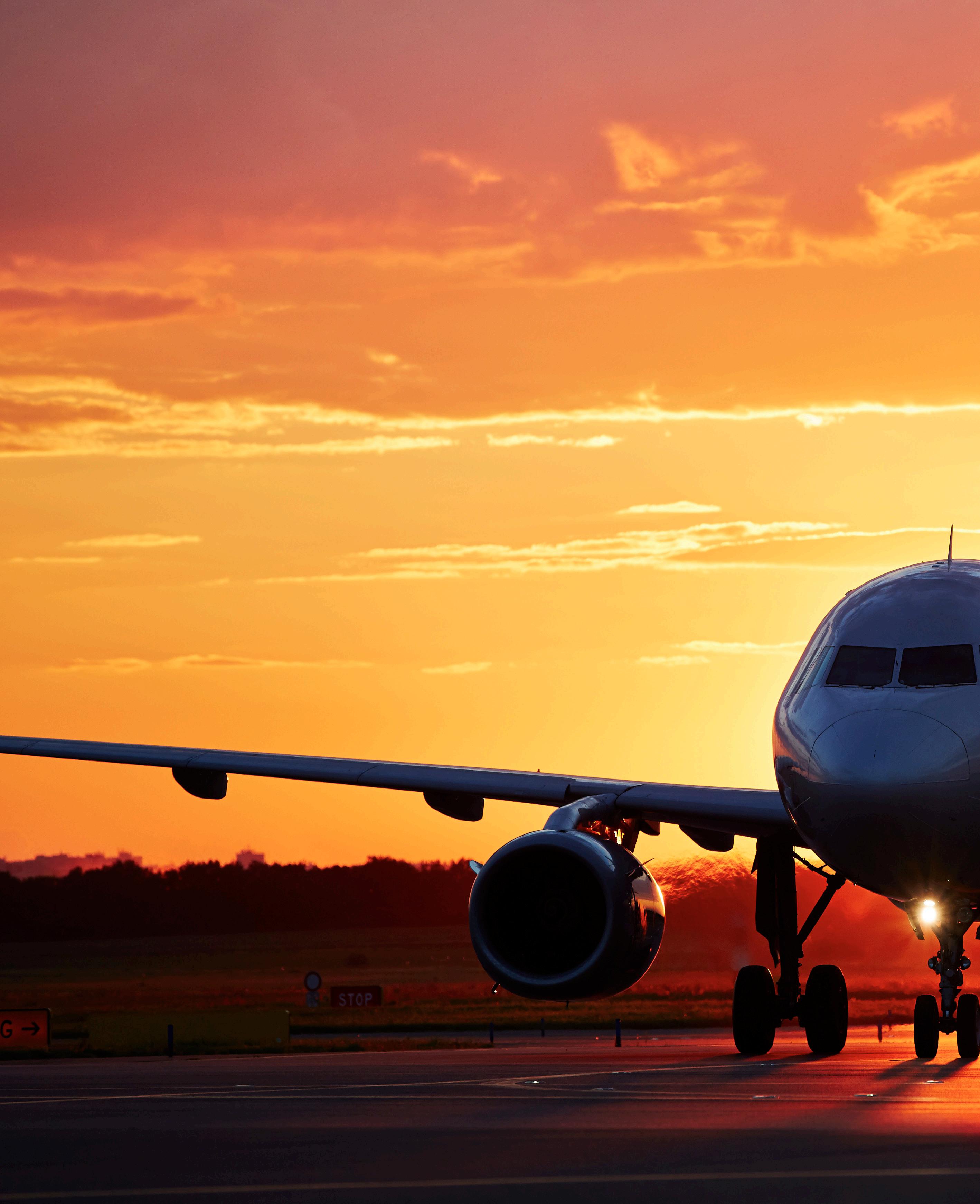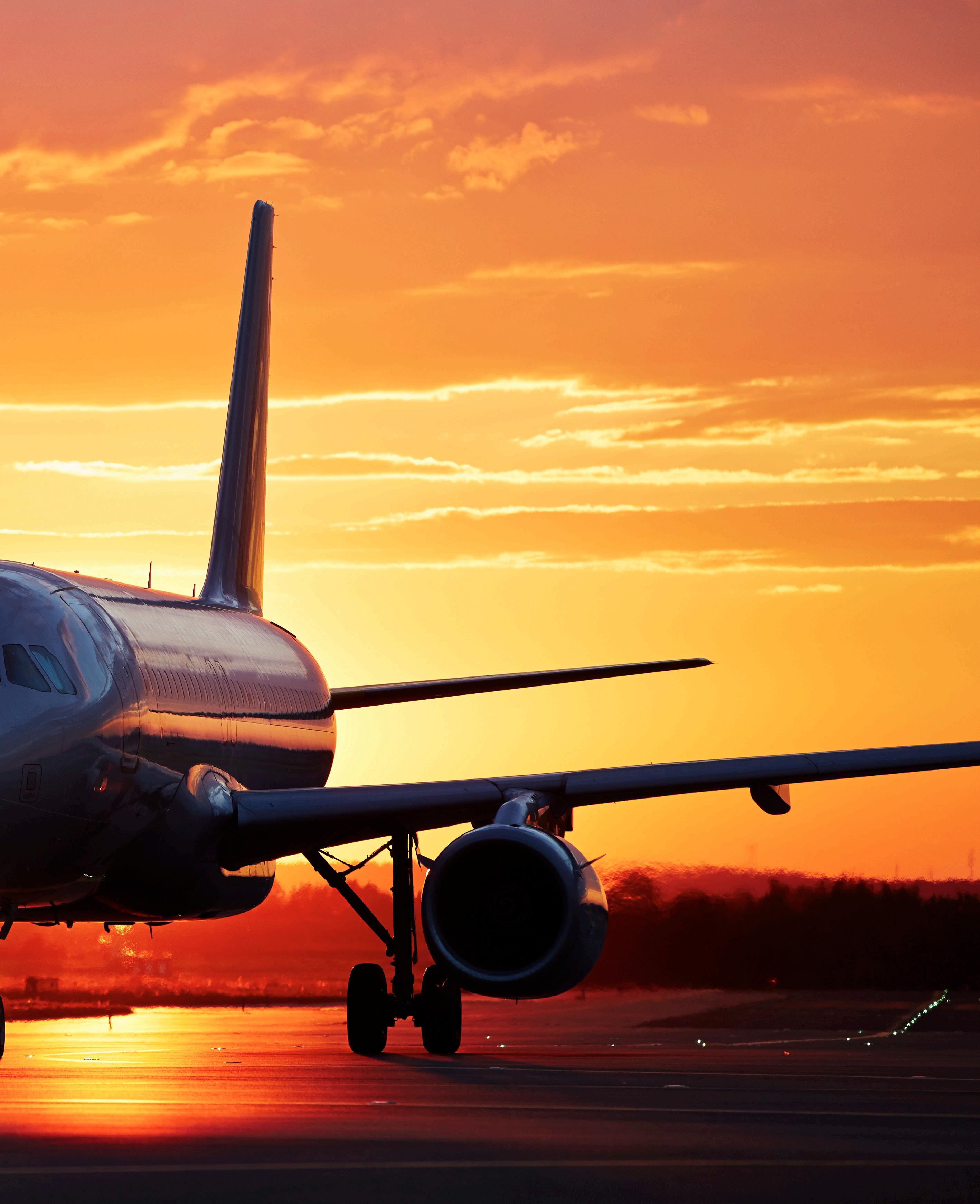
4 minute read
AIRLINES FACING RAPID CASH BURNS WARNS IATA
AIRLINES FACING
RAPID CASH BURN& DEEPER REVENUE HIT FROM COVID-19
Advertisement
The International Air Transport Association (IATA) updated its analysis of the revenue impact of the COVID-19 pandemic on the global air transport industry. Owing to the severity of travel restrictions and the expected global recession, IATA now estimates that industry passenger revenues could plummet $252 billion or 44% below 2019’s figure. This is in a scenario in which severe travel restrictions last for up to three months, followed by a gradual economic recovery later this year. IATA’s previous analysis of up to a $113 billion revenue loss was made on 5 March 2020, before the countries around the world introduced sweeping travel restrictions that largely eliminated the international air travel market.
“The airline industry faces its gravest crisis. Within a matter of a few weeks, our previous worst case scenario is looking better than our latest estimates. But without immediate government relief measures, there will not be an industry left standing. Airlines need $200 billion in liquidity support simply to make it through. Some governments have already stepped forward, but many more need to follow suit,” said Mr. Alexandre de Juniac, Director General and CEO of IATA.
Slower Recovery
The latest analysis envisions that under this scenario, severe restrictions on travel are lifted after 3 months. The recovery in travel demand later this year is weakened by the impact of global recession on jobs and confidence. Full year passenger demand (revenue
passenger kilometers or RPKs) declines 38% compared to 2019. Industry capacity (available seat kilometer or ASKs) in domestic and international markets declines 65% during the second quarter ended 30 June compared to a year-ago period, but in this scenario recovers to a 10% decline in the fourth quarter.
The International Air Transport Association (IATA) published new analysis showing that airlines may burn through $61 billion of their cash reserves during the second quarter ending 30 June 2020, while posting a quarterly net loss of $39 billion.
This analysis is based on the impact assessment IATA released last week, under a scenario in which severe travel restrictions last for three months. In this scenario, full-year demand falls by 38% and full-year passenger revenues drop by $252 billion compared to 2019. The fall in demand would be the deepest in the second quarter, with a 71% drop.
The impact will be severe, driven by the following factors:
Revenues are expected to fall by 68%. This is less than the expected 71% fall in demand due to the continuation of cargo operations, albeit at reduced levels of activity
Variable costs are expected to drop sharply—by some 70% in the second quarter—largely in line with the reduction of an expected 65% cut in second quarter capacity. The price of jet fuel has also fallen sharply, although we estimate that

fuel hedging will limit the benefit to a 31% decline.
Fixed and semi-fixed costs amount to nearly half an airline’s cost. We expect semi-fixed costs (including crew costs) to be reduced by a third. Airlines are cutting what they can, while trying to preserve their workforce and businesses for the future recovery.
These changes to revenues and costs result in an estimated net loss of $39 billion in the second quarter.
On top of unavoidable costs, airlines are faced with refunding sold but unused tickets as a result of massive cancellations resulting from government-imposed restrictions on travel. The second quarter liability for these is a colossal $35 billion. Cash burn will be severe. We estimate airlines could be burning through $61 billion of their cash balances in the second quarter.

“Airlines cannot cut costs fast enough to stay ahead of the im- pact of this crisis. We are looking at a devastating net loss of $39 billion in the second quarter. The impact of that on cash burn will be amplified by a $35 billion lia- bility for potential ticket refunds. Without relief, the industry’s cash position could deteriorate by $61 billion in the second quarter,” said Alexandre de Juniac, IATA’s Direc- tor General and CEO.
Several governments are re- sponding positively to the indus- try’s need for relief measures. Among countries providing specif- ic financial or regulatory aid pack- ages to the industry are Colom- bia, the United States, Singapore, Australia, China, New Zealand and Norway. Most recently, Canada, Colombia, and the Netherlands have relaxed regulations to allow airlines to offer passengers travel vouchers in place of refunds.
“Travel and tourism is essen- tially shut down in an extraordi- nary and unprecedented situation. Airlines need working capital to sustain their businesses through the extreme volatility. Canada, Co- lombia, and the Netherlands are giving a major boost to the sec- tor’s stability by enabling airlines to offer vouchers in place of cash refunds. This is a vital time buffer so that the sector can continue to function. In turn, that will help preserve the sector’s ability to de- liver the cargo shipments that are vital today and the long-term con- nectivity that travelers and econ- omies will depend on in the recov- ery phase,” said de Juniac.










